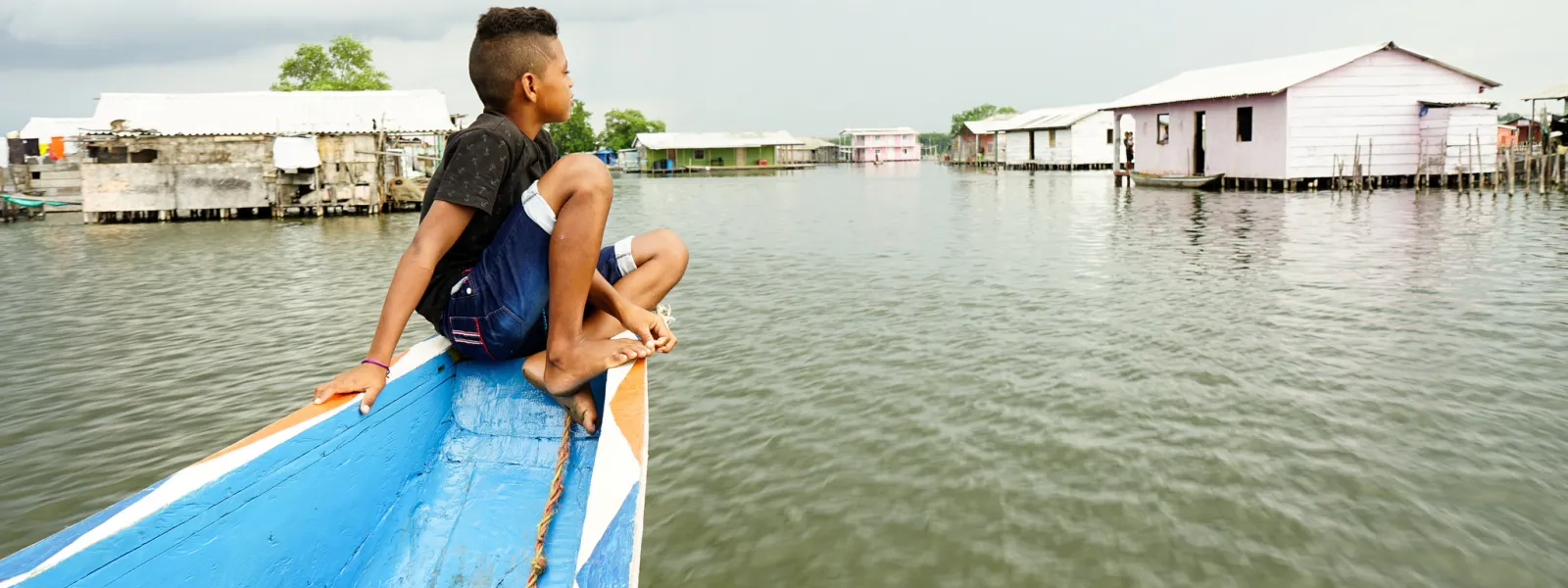
Project
Photo: Anna Laurie Miller / AIDAConserving the Ciénaga Grande de Santa Marta
Ciénaga Grande de Santa Marta, the largest and most productive coastal wetland in Colombia, covers 45,000 hectares. At the confluence of the Magdalena River and the Caribbean Sea, the site boasts an immense variety of flora and fauna, including mammals, birds and fish. Its southern tip is a beautiful sanctuary of mangroves, swamp and amphibious forest.
On the calm waters of the marsh stand the Ciénaga’s famous stilt villages, supported by pillars or simple wooden stakes and inhabited by local fishermen since 1800. In a place accessible only by water, many of the things we take for granted—being served a glass of water, quick access to a doctor—are considered luxuries. Residents depend on the natural world around them. Sadly, in recent years mass fish die-offs caused by the marsh’s degradation have threatened the livelihoods of 2,500 people who call the Ciénaga Grande home.
Illegal activities are destroying this vital ecosystem: intentionally set forest fires, deforestation of large tracks of land for agriculture and livestock, logging and burning of mangroves, and 27 kilometers of illegally built dikes.
This destruction not only devastates the local fishery; it also has global impact. Ciénaga Grande’s mangroves absorb large quantities of carbon dioxide from the atmosphere, aiding in the global fight against climate change.
The importance of the Ciénaga Grande has been recognized both nationally – the Sanctuary of Flora and Fauna Ciénaga Grande de Santa Marta is a national park – and internationally: UNESCO’s Man and the Biosphere program declared the lagoon a biosphere reserve; and the Ciénaga Grande is listed as a Wetland of International Importance under the Ramsar Convention, an intergovernmental treaty for the protection of wetlands.
AIDA and our partners are advocating for the Colombian government to fulfill its national and international obligations to protect the Ciénaga Grande. After all, millions of animals, the local community, and our global climate depend on it.
Partners:
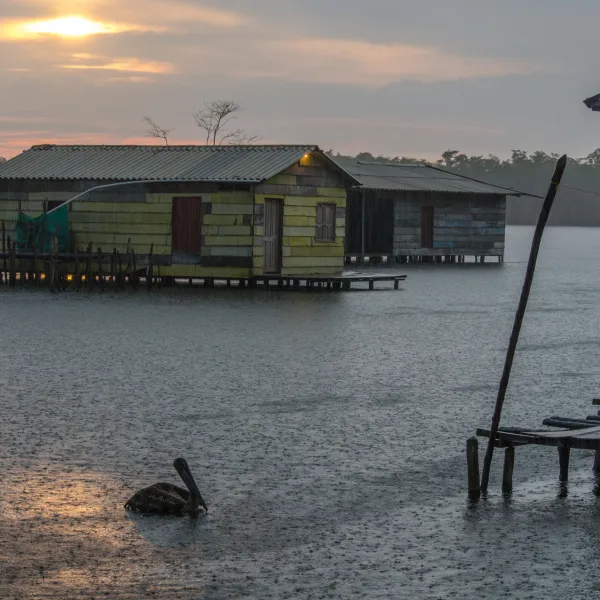
Related projects
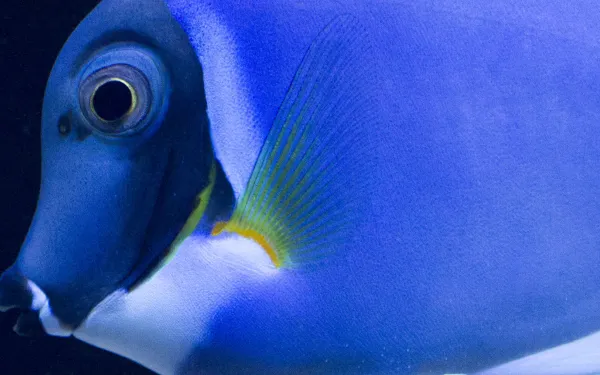
Herbivorous fish and coral reefs: a relationship we must protect
Vibrantly colored herbivorous fish feed on the macroalgae that covers coral reefs. These fish play a fundamental role in the health of marine environments by cleaning the algae that deprive corals of light and oxygen. They are vital for maintaining the ecological equilibrium necessary for the reef’s survival. Recommendations for saving herbivorous fish Targeted measures are urgently needed to maintain and improve the health of coral reefs. Protecting the colonies of herbivorous fish that sustain them would go a long way toward helping reefs recover. In order to do so, AIDA recommends: Establishing and adopting strong fishing management and conservation strategies that will help herbivorous fish (particularly parrotfish) populations recover. This includes fishing management initiatives, establishing temporary or location-based bans, and strict quotas on fishing. Other measures include encouraging fisheries to diversify the species they capture. In the Caribbean, for example, fishing for lionfish—an invasive species—could be promoted as a viable economic alternative in hundreds of fishing communities. Establishing marine protected areas and recovery zones where fishing is prohibited. These areas or zones, which should include at-risk habitats, need urgent protection because they are considered refuges for juvenile and adult fish. Allowing herbivorous fish species to complete their life cycles would contribute to the resilience of key marine environments like coral reefs. Standardize monitoring techniques of fish populations and implement alternative management practices. Encouraging optimal standard practices would allow scientists working in diverse habitats to improve monitoring, as well as fishery and ecosystem management. Among other options, reef restoration is also extremely beneficial, and has already been adopted in several areas of Mexico. Promote comprehensive regional management systems that allow local authorities to share experiences and establish shared management and conservation tools. Create and implement norms and laws that protect reefs and herbivorous fish. These could include laws that promote adequate fishing management practices and effectively combat threats like overfishing and tourism that damage reef habitats. Such laws could also encourage low impact coastal development that incorporates thorough scientific and technical evaluation into the planning process. See THE Fact Sheet (in Spanish)
Read more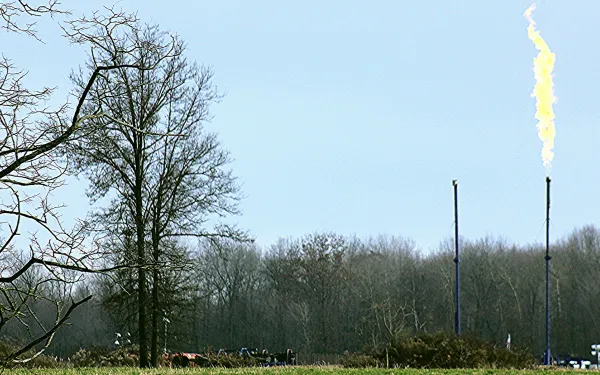
How fracking's methane leaks aggravate climate change
I’ve seen them more times than I can remember, but the shock never fades: ten-foot-high flames burning off gas at the BP processing plant in Whiting, Indiana. The facility is close to where I grew up, so we’ve had a lot of time to marvel at the flare stacks. My sister thought they were volcanoes when she was little and, in my family, the name has stuck. Converting waste methane to carbon dioxide (CO2) through flaring is common practice in oil and gas production. This makes “volcanoes” a familiar feature of drilling and hydraulic fracturing, or fracking, fields. The sight of stacks spewing CO2 directly into the air is both visually striking and enraging: a visual metaphor for a world run on extractive, dirty energy. And yet, when it comes to fracking, the volcanoes and their carbon emissions aren’t even the biggest problem. That which is most dangerous is often hardest to see—invisible, in this case. Fracking’s worst air pollution actually occurs through methane leaks. Methane is a greenhouse gas whose global warming potential is 86 times greater than carbon dioxide over a 20-year period, according to the Intergovernmental Panel on Climate Change. It leaks stealthily at every point in the gas supply chain into our atmosphere, undetectable without advanced equipment and frequent tests. According to NASA, the oil and gas industry is responsible for the global rise in methane emissions, beating even landfills and dairy production. Many of these emissions come from leaking pipes attached to fracked gas wells. While many of fracking’s damages—the contamination of water tables, an increase in man-made earthquakes—are well documented, fracking’s air pollution is a more difficult battle to fight. There are no convenient visuals of tap water set on fire or flattened homes. But the fact that we can’t see methane leaking into the air doesn’t make its impact any less intense: diffuse toxic particles grip the throat like so many invisible hands; methane causes nosebleeds and asthma; gas leaks squeeze the brain into dizzying headaches and seizures; toxic additives cause babies to be born prematurely with low birth weight and life-threatening defects. Leaking methane is also of particular concern when it comes to climate change. When just less than 2 percent of a pipeline’s total carried methane leaks into the air, the gas loses its supposed “cleaner” climate advantage over even coal. Recent studies show that U.S. fracking fields leak at tremendously uneven rates, some up to a whopping 12 percent. In other words, only a small number of wells are responsible for an extreme amount of contamination. But this also means that we already have part of the solution: fixing leaks at these super-polluting fields would be a huge boon for climate regulation. Leak detention and repair requires frequent and careful oversight, but it is also cost-effective, and often actually pays for itself. Gas companies can patrol their own distribution lines, looking for and repairing leaks. Pneumatic pipeline controllers can be replaced with better, low-bleed controllers. This extra care, however, is exactly what fracking’s proponents fight against: the gas industry in the United States has long denied and diminished the severity of leaking pipelines. Like the greenhouse gas pollution that causes it, climate change is a slow-paced disaster. It is a long, diffuse emergency that, in a sound-byte world, isn’t dramatic enough for short-term elections and news cycles, and usually isn’t brought up until it’s too late. Alternatives to fracking But times are changing. And the solution to a warming world isn’t just about fixing leaks. We can’t just mitigate a life-threatening system; we have to end it. Instead of perpetuating our dependence on gas, we must invest in a just transition and move into economically sustainable forms of energy, like solar and wind. Gas delivery systems and their maintenance are as expensive as they are toxic, and will soon become obsolete. We must fight for better regulation of our present system, while building up alternatives for a better tomorrow. This is particularly important in parts of the world that are only now starting to embrace fracking. While somewhat ubiquitous in the global North, fracking has only just begun in Latin America, where roughly 5,000 wells have popped up in the past few years. Frontline communities and human rights defenders from across the Americas have fought hard to win bans or restrictions on fracking. They urge that their nations not fall for fracking’s trap—harms would be amplified by lax regulation and further aggravate climate change. In October they testified before the Inter-American Commission on Human Rights on the harm fracking has caused to communities across Latin America. Liliana Ávila, a senior attorney at AIDA, explained that fracking-induced pollution impacts basic human rights, and that environmental defenders often face extreme violence when protecting their territories from the gas industry. Part of the battle for a global and just transition towards a sustainable, equitable energy economy is being able to recognize those harms that are harder to see—including those that are invisible at first. It’s the quiet harms that unfold over long time spans that are catching up to us now.
Read more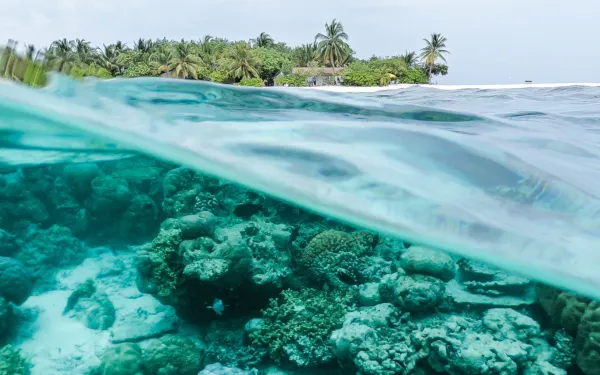
Putting my heart in the conservation of wetlands
Coral reefs are my favorite wetlands. They’re full of so many colors and shapes, and simply teeming with life. When I’m underwater, my heart is full of peace and excitement, as I see myself surrounded by so many forms of life, so many species living together. As a marine biologist, I’ve had the opportunity to scuba dive in a variety of countries and see many of these beautiful ecosystems up close. Of all my dives, the ones I enjoyed most were those I did—for work and for pleasure—in the Bay Islands of Honduras. As a recent college graduate and volunteer with the Atlantic and Gulf Rapid Reef Assessment Program, I was in charge of monitoring the countless organisms that live in or on the reefs—seaweed, sea urchins, lobsters, queen snails, and so many others. Without a doubt, my time diving in the Cayos Cochinos sparked my personal and professional journey. Since then, I’ve set out to protect these magical ecosystems, vital to all life this planet. My current role, as scientific advisor to AIDA, uses science to strengthen the legal arguments employed to protect these and other at-risk natural environments in Latin America. Wetlands, vital and at-risk In addition to coral reefs, wetlands—characterized by the presence of water—include lakes and rivers, underground aquifers, swamps and marshes, grasslands, peat bogs, estuaries and deltas, mangroves, and sea grasses. Wetlands act as the “kidneys” of the planet because they recycle water and waste, retain sediment and nutrients, reduce erosion, and absorb carbon dioxide from the atmosphere, in turn mitigating climate change. However, it’s estimated that since 1700 we’ve lost nearly 87 percent of our wetlands at a speed three times greater than the loss of our natural forests. This has caused a drastic reduction in biodiversity, affecting 81 percent of continental species and 36 percent of marine and coastal species. Among the greatest threats to our wetlands are contamination by garbage, wastewater and industrial pollution; changes in land use; agricultural runoff, erosion and climate change. What’s more, global warming is increasing the temperature of the oceans, raising sea levels, and melting the poles. According to the Intergovernmental Panel on Climate Change, an increase of 1.5°C in global temperature could kill almost 90 percent of the world’s coral reefs—an irreversible and heartbreaking loss. Taking action to save wetlands Given this frightening global scenario, urgent action is required to protect our planet’s wetlands. In fact, there are many ways we can begin to do so immediately, such as: Creating restoration campaigns for vital ecosystems like mangroves and coral reefs. Declaring natural protected areas, to conserve wetlands and the species that depend on them. Developing policies that allow for the rational use of wetlands, where conservation is prioritized. Prohibiting the destruction of these ecosystems in any type of project, be it tourism, development or infrastructure. Establishing water treatment plans to prevent drainage and runoff from contaminating wetlands. Every year, on February 2, we celebrate World Wetlands Day, commemorating the signing of the Ramsar Convention, the only intergovernmental treaty for the conservation and rational use of our planet’s wetlands. This year’s celebration is focused on wetlands and climate change, inviting us all to reflect on the value of our wetlands, the critical services they provide, and urgency with which we must protect them. We are not powerless in the face of climate change. Saving our wetlands may just be the first step toward saving our planet, and ourselves.
Read more